Augusta Victoria, wife of Kaiser Wilhelm, was a broken woman at the end of WWI
SHE was the great niece of Queen Victoria and married Victoria’s grandson to become the last Empress of Germany, but Augusta Victoria’s heart was broken by the downfall of her husband and the death of her youngest child.
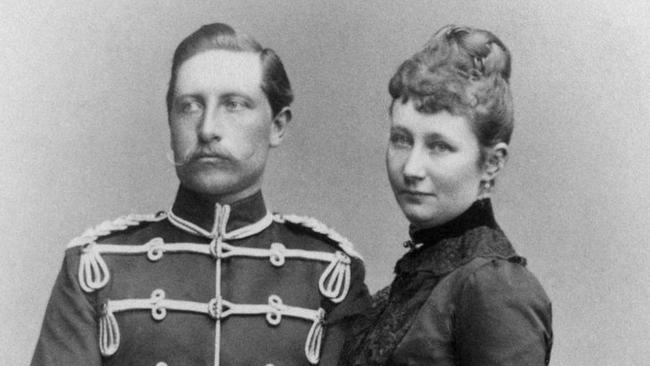
Today in History
Don't miss out on the headlines from Today in History. Followed categories will be added to My News.
WHEN Kaiser Wilhelm II of Germany was forced to abdicate on November 9, 1918, two days before the Armistice, and board a train for the Netherlands, accompanying him was his faithful wife, the Kaiserin Augusta Victoria.
While she seemed to bear the humiliation of leaving her homeland with the customary royal stoicism, inside she and her family were crumbling. The marriages of her sons Joachim and August Wilhelm were breaking down and she was unable to see her eldest son, the former Crown Prince Wilhelm, who was interned on the island of Wieringen in the north of the Netherlands.
As things became worse — the Kaiser condemned during the peace talks at Versailles and the suicide of her youngest son Joachim in 1920 — her physical and mental health worsened.
She died in April 1921 a broken woman, but in her ignominious death the new Republic of Germany afforded her an honour that would later be denied her husband, allowing her body to be buried on German soil in the Temple of Antiquities at Potsdam.
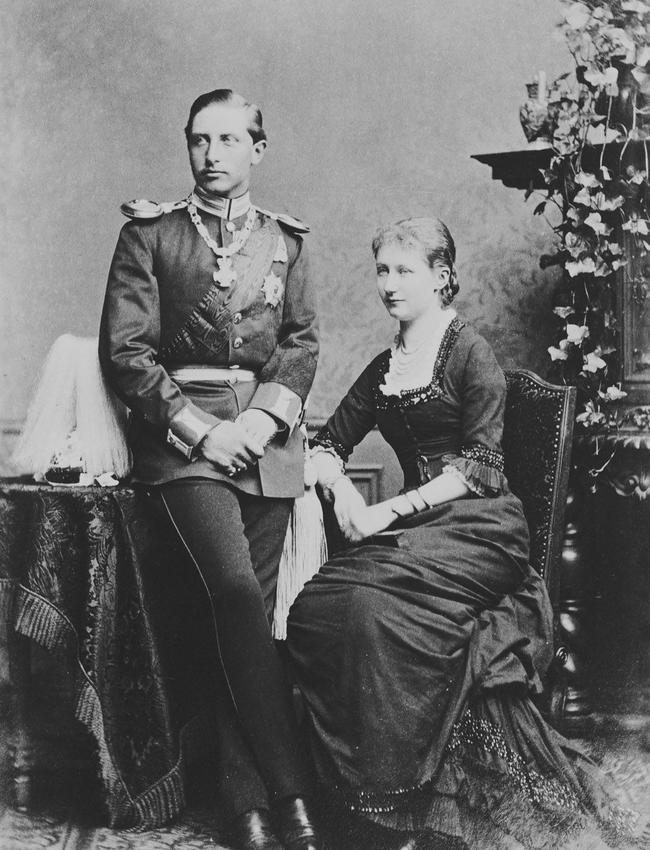
Born 160 years ago today, on October 22, 1858, she was named Augusta Victoria Friederike Louise Feodora Jenny. Her birthplace was Dolzig Palace, Eastern Prussia (what is Poland today). Her father, Frederick VIII, was heir to the throne of the duchy of Schleswig-Holstein, but the duchy was annexed in 1864 a year after Frederick’s accession and he lost all effective power.
Augusta’s mother was Princess Adelheid of Hohenlohe-Langenburg, the daughter of Princess Feodora of Leiningen, Queen Victoria’s half-sister (Victoria’s mother remarried after the death of her father Prince Edward, the Duke of Kent). Therefore Augusta was a half-cousin to Wilhelm, the grandson of Queen Victoria by her eldest daughter Princess Victoria “Vicky”, who was born three months after Augusta in January 1859.
Augusta’s education was entrusted to a protestant minister, so she never developed a depth of political understanding, but was deeply conservative, which made her a good match for Wilhelm.
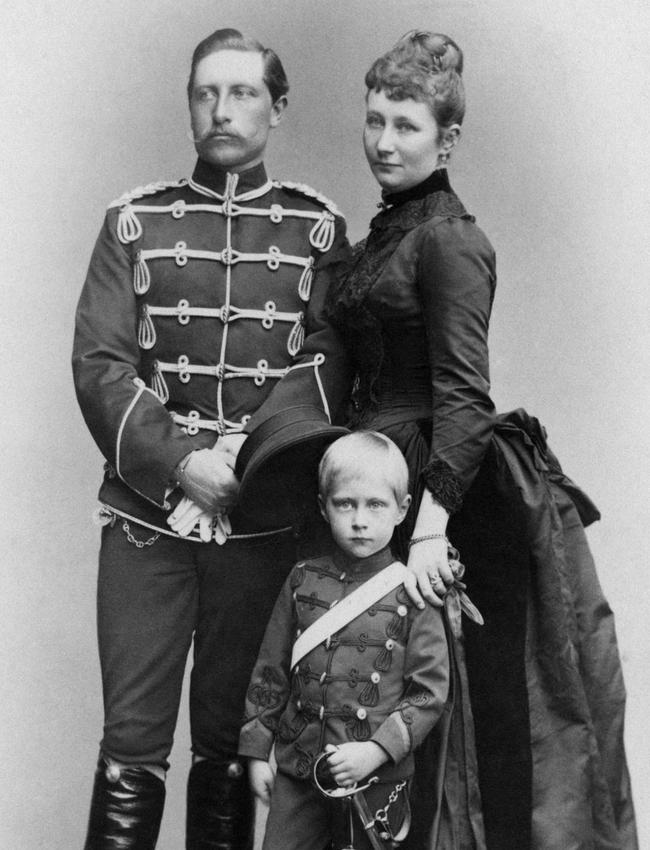
When she first met Wilhelm they were only 10 years old. Both would have their hearts broken by other loves before they came together.
As a teenager Augusta fell deeply in love with her cousin Prince Ernst of Saxe-Meiningen, but her parents disapproved of the romance and sent Augusta to England to discourage it. Wilhelm was smitten by his cousin Princess Elisabeth of Hesse, writing her love poetry and visiting her often. In 1878 he proposed to her but she turned him down.
In 1878 Augusta and Wilhelm met again and began to fall in love. Some people opposed a marriage because Augusta was of a lesser royal rank. But the couple found a supporter in German Chancellor Otto von Bismarck, who believed the marriage would resolve the simmering dispute between Prussia and Schleswig-Holstein. They were married on February 27, 1881, in Berlin.
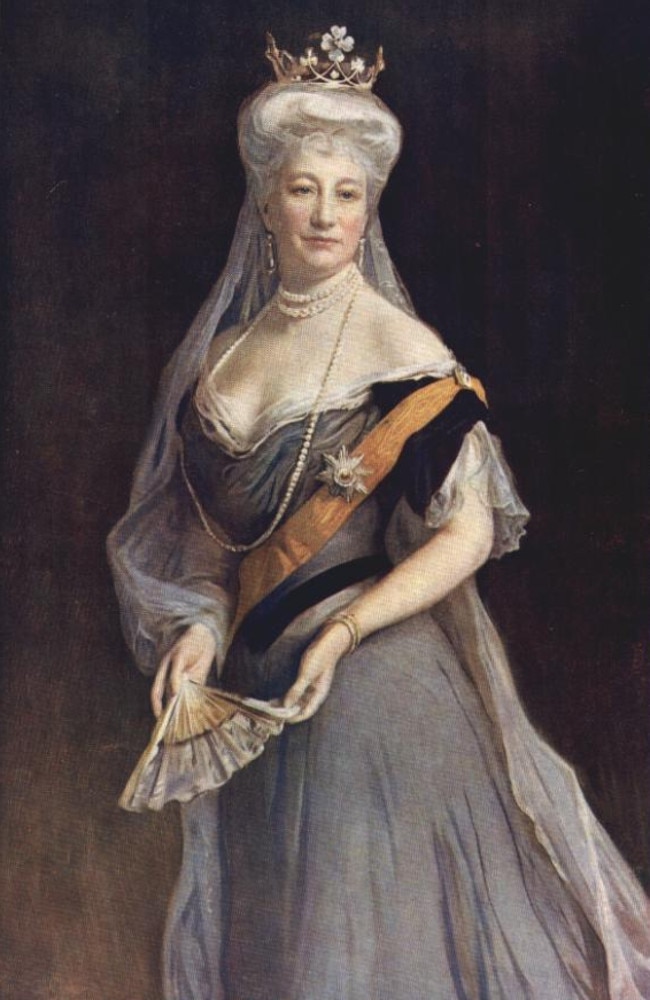
Augusta enjoyed a happy marriage, despite disagreements with her mother-in-law. She doted on Wilhelm and he enjoyed being fussed over. Augusta was one of the only people who could calm Wilhelm when he flew into a rage.
Their first child, Crown Prince Wilhelm, was born in May 1882. Prince Eitel followed in 1883, Prince Adalbert in 1884, Prince August Wilhelm in 1887, Prince Oskar in 1888 (the year Wilhelm became Kaiser), Prince Joachim in 1890 and Princess Victoria Louise in 1892.
When Augusta became Kaiserin she applied herself to charitable work. After a visit to Jerusalem in 1898 the Empress Augusta Victoria Foundation was established and built a hospital in the city in 1907.
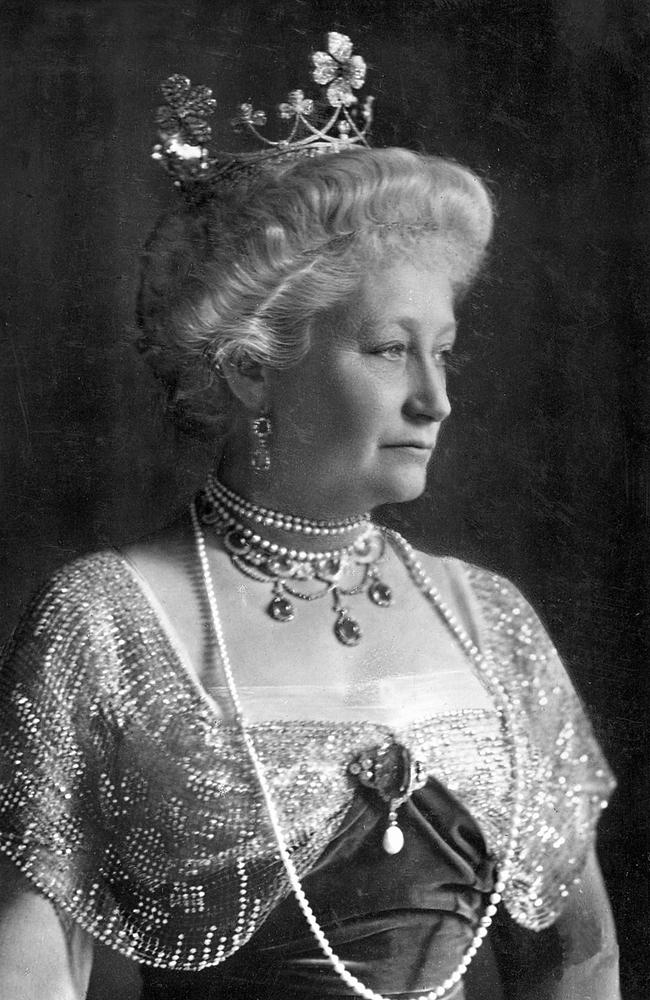
Although not politically well-informed, Augusta was Wilhelm’s confidante during political crises. As the nation headed to war, the Kaiser often consulted her. However, her conservatism and anti-British bias helped push the country toward war. During WWI she threw herself into more charity work and became head of the German arm of the Red Cross, but was also there to side with the Kaiser and the military against the elected parliament in times when the war was going badly.
Toward the end of the war Augusta’s health deteriorated. By the time they fled to the Netherlands in 1918, their personal problems compounded the stress. When she died in 1921 thousands of people lined railway lines to watch the train carry her body through Germany to its resting place.
The Kaiser deeply mourned her passing, but he was not allowed to attend her funeral. When he died in 1941 his body remained in the Netherlands and to this day Germany refuses to allow his remains to return.

